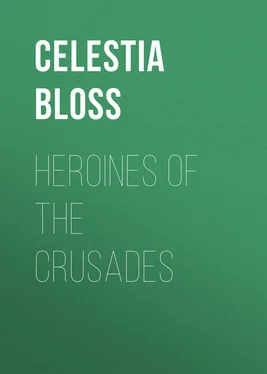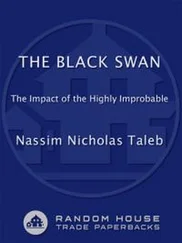Celestia Bloss - Heroines of the Crusades
Здесь есть возможность читать онлайн «Celestia Bloss - Heroines of the Crusades» — ознакомительный отрывок электронной книги совершенно бесплатно, а после прочтения отрывка купить полную версию. В некоторых случаях можно слушать аудио, скачать через торрент в формате fb2 и присутствует краткое содержание. Жанр: foreign_antique, foreign_prose, на английском языке. Описание произведения, (предисловие) а так же отзывы посетителей доступны на портале библиотеки ЛибКат.
- Название:Heroines of the Crusades
- Автор:
- Жанр:
- Год:неизвестен
- ISBN:нет данных
- Рейтинг книги:3 / 5. Голосов: 1
-
Избранное:Добавить в избранное
- Отзывы:
-
Ваша оценка:
- 60
- 1
- 2
- 3
- 4
- 5
Heroines of the Crusades: краткое содержание, описание и аннотация
Предлагаем к чтению аннотацию, описание, краткое содержание или предисловие (зависит от того, что написал сам автор книги «Heroines of the Crusades»). Если вы не нашли необходимую информацию о книге — напишите в комментариях, мы постараемся отыскать её.
Heroines of the Crusades — читать онлайн ознакомительный отрывок
Ниже представлен текст книги, разбитый по страницам. Система сохранения места последней прочитанной страницы, позволяет с удобством читать онлайн бесплатно книгу «Heroines of the Crusades», без необходимости каждый раз заново искать на чём Вы остановились. Поставьте закладку, и сможете в любой момент перейти на страницу, на которой закончили чтение.
Интервал:
Закладка:
“It seems but yesterday,” said she, tenderly detaching the baldric, “since I held this up before thee with pride and pleasure, and in careless wonder saw thee wreathe it in the canopy of my couch. But that dream, now that my whole life looks a dream, seems the one reality of my existence. I shall tell it thee, for my spirit already feels the balm of thy gentle sympathy.
“My slumbers were at first broken and disturbed. I seemed with Stephen and Robert in an eastern land, hurrying over rocks and sands, a tiresome, weary way, in pursuit of a crown which constantly tempted, but eluded the grasp. First I missed Stephen from my side, then Robert disappeared, and at last I sank down among myriads of wretches perishing of thirst. I woke in terror, and it was long ere I could compose myself again to rest. Whether I slept again I know not, but as I lay gazing into the depths of the heavens, my vision seemed to pierce beyond the stars; and from the uttermost distance came one winging his way past the bright orbs, till he stood within the casement, the impersonation of my lover.
“My scarf lay upon his breast, and his right hand held out to me an urn, pure as though formed of consolidated light, upon whose amethystine entablature was engraven Human Love . As I extended my hand, and clasped the precious treasure, the shattered inscription fell to dust in the vase. I raised my eyes, – he threw a pitying smile upon me, and immediately there sprang up from the ashes a celestial flower, and as each living petal unfolded, there floated off a radiant line of light bearing the sacred words Divine Love , till the whole air was filled with redolence and beauty.
“The ringing of the matin chimes recalled me to consciousness, and my bright vision was absorbed by the flood of glory which the morning sun poured into the apartment.
“Thou saidst truth!” exclaimed Maude. “Thy dream is a reality; for in the ashes of Human Love , the Divine plants the sweetest hopes of existence.”
The long sealed fountain of Adela’s tears began to flow, and as the gracious drops distilled from her surcharged heart, and her paralyzed sensibilities felt once more the bliss of emotion, the strong, proud woman, became gentle and humble as a child.
“Maude,” said she, clasping her hands in gratitude, “there was ever a mystery about thee. I had thought to wear out my life in sad penance, and thou hast opened to me a source of happy contemplation: henceforth my desert future, fertilized by the sweet waters that have gushed from the rock at thy magic touch, shall blossom with the flowers of Paradise.”
The abbess Cicely here entered, and summoned them to the hall of general reception, where Maude embraced her son and received the ambassadors sent by her husband to conduct her to Stirling, the place appointed for her coronation, as Queen of Scotland.
“Go,” said Adela, with affectionate joy, as she saw her depart. “Go to thy bright destiny. Thou art a living illustration of the truth of scripture, ‘Be thou faithful over a few things, and I will make thee ruler over many things.’”
ELEANOR
CHAPTER I
“In the midst was seen
A lady of a more majestic mien,
By stature and by beauty marked their sovereign Queen.”
The southern provinces of France, Poitou, Saintogne, Auvergne, Perigord, Limousin, Angoumois and Guienne, received of the Romans the classic appellation of Aquitaine. This beautiful land, watered by the Garonne and Loire, whose clear and sparkling streams, flowing from vine-clad hills, stretched their silvery arms to irrigate the fairest fields and to enclose the finest harbors in the world, was in the twelfth century, inhabited by the most civilized and polished people on the face of the earth. The arts, and the idealities, and the refinements of life, like the native flowers of its sunny vales, seemed wakened and nourished by the genial airs of a climate, softened by the proximity of the sea, and rendered bracing by the mountain breeze. The numerous and independent sovereigns, whose feudal sway extended over this fair territory, imbibed the spirit of chivalry, and caught the enthusiasm that precipitated the armies of Europe upon Asia. Count Raimond of Toulouse, was one of the first who took the cross, at the council of Clermont. He was styled par excellence the Moses of the expedition. Before leaving for Palestine, on his returnless voyage, he ceded his dominions to his daughter, wife of William IX. of Poitou. The grand-children of William IX. were Eleanor and Petronilla. The father of these fair sisters, William X., left Aquitaine in 1132, with their uncle Raimond, who was chosen prince of Antioch.
The poetical taste of Eleanor was early cultivated and developed by the unrestrained freedom she enjoyed in the queenless court of her minstrel grandfather in Gay Guienne. The language that prevailed all over the south of France, was called Provençal. It was the mother-tongue of Duke William, the grandfather of Eleanor, who was one of the most liberal patrons and earliest professors of that style of composition in which the Troubadours celebrated the feats of love and arms. The matchless charms of Eleanor were enhanced by all the accomplishments of the south. Her fine genius found ample exercise in composing the sirvantes and chansons of Provençal poetry, and her delicate fingers wiled the spirit of music from the echoing harp to accompany her voice adown the tide of song. She inherited from her grandfather the political sovereignty of her native dominions not only, but the brilliant talents and ancestral superiority that made her Empress in the realm of Taste, and Queen of the courts of Love.
When the gay and licentious Duke William felt the infirmities of age coming upon him, he determined to seek the readiest means to rid himself of the burden of his sins. Accordingly, he resolved to resign the most potent sceptre in Europe to the unpractised hand of his youthful granddaughter, and devote the rest of his days to prayer and penitence in a hermitage of the rocky wilderness of St. James de Compostella. Eleanor had not attained her fifteenth year when her grandfather commenced his career of self-denial, by summoning the baronage of Aquitaine to transfer their allegiance to herself; and the child-sovereign exercised the royal functions of her new dignities while the duke visited the court of Louis le Gros and offered her hand to the young prince. The wise lawgiver of France readily accepted the proposal – for the rich provinces which constituted the dower of Eleanor, held allegiance to the crown, only by feudal tenure; and the son, equally impatient for the possession of his fair prize, set off with a noble train for Bordeaux. The light heart of Eleanor was easily won by the unrivalled attractions of Louis le Jeune, whose courtly graces were illuminated by the prospect of the crown of Charlemagne; while the damsels that composed her court, exercised their blandishments with cruel skill upon the too susceptible hearts of the cavaliers that came in the train of the bridegroom. The parliament of Love deliberated day by day in mock solemnity upon the pretensions of the fair rivals, and the discreet decisions of Eleanor, the presiding genius of the conclave, inspired the songs of Trouveres and Troubadours, who vied with each other in celebrating her charms.
A succession of long, bright days, closed the month of July, and on the last evening the court of Love continued its session till the brilliant twilight had faded from the western sky, and the mellow harvest-moon poured a silver flood upon fountains that sprang as if instinct with life to catch and fling the shining radiance upon the gay company that still lingered in the Rose Pavilion. The Queen of the court, attired like Venus, sat upon a throne, canopied with Acaeia, through whose trembling leaves the light fell playfully contending with the envious shadows that seemed striving to hide her smiles. At her feet sat her favorite page, with wings framed of gauze attached to his shoulders, holding a lyre, fashioned to resemble the bow of Cupid, upon which he occasionally struck a few notes to announce a change in the evening’s entertainment. Lovely maidens arrayed as Nymphs and Graces reclined upon verdant couches around the fair arbitress of these amorous debates. Groups of light-hearted girls, representing heathen goddesses, listened encouragingly to their favorite minstrels, and strove, by various subtle arts, to win the meed of praise to the verse that celebrated their charms. Sirventes and Chansons had been recited and sung, still the assembly listened with an air of impatience, as if anticipating matters of more general interest. With a smile that at once excited and baffled curiosity, the Queen touched the cheek of her page with her flowery sceptre, saying, “Why slumbers the harp of my pretty Peyrol? Has he no song for the ear of his lady?”
Читать дальшеИнтервал:
Закладка:
Похожие книги на «Heroines of the Crusades»
Представляем Вашему вниманию похожие книги на «Heroines of the Crusades» списком для выбора. Мы отобрали схожую по названию и смыслу литературу в надежде предоставить читателям больше вариантов отыскать новые, интересные, ещё непрочитанные произведения.
Обсуждение, отзывы о книге «Heroines of the Crusades» и просто собственные мнения читателей. Оставьте ваши комментарии, напишите, что Вы думаете о произведении, его смысле или главных героях. Укажите что конкретно понравилось, а что нет, и почему Вы так считаете.












